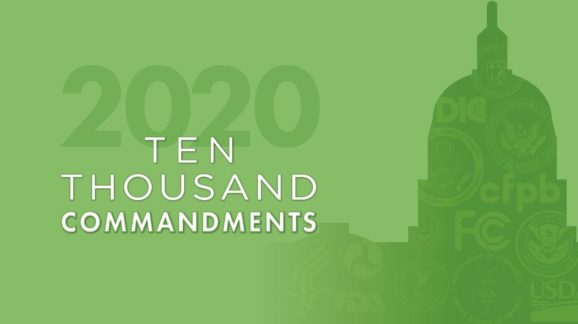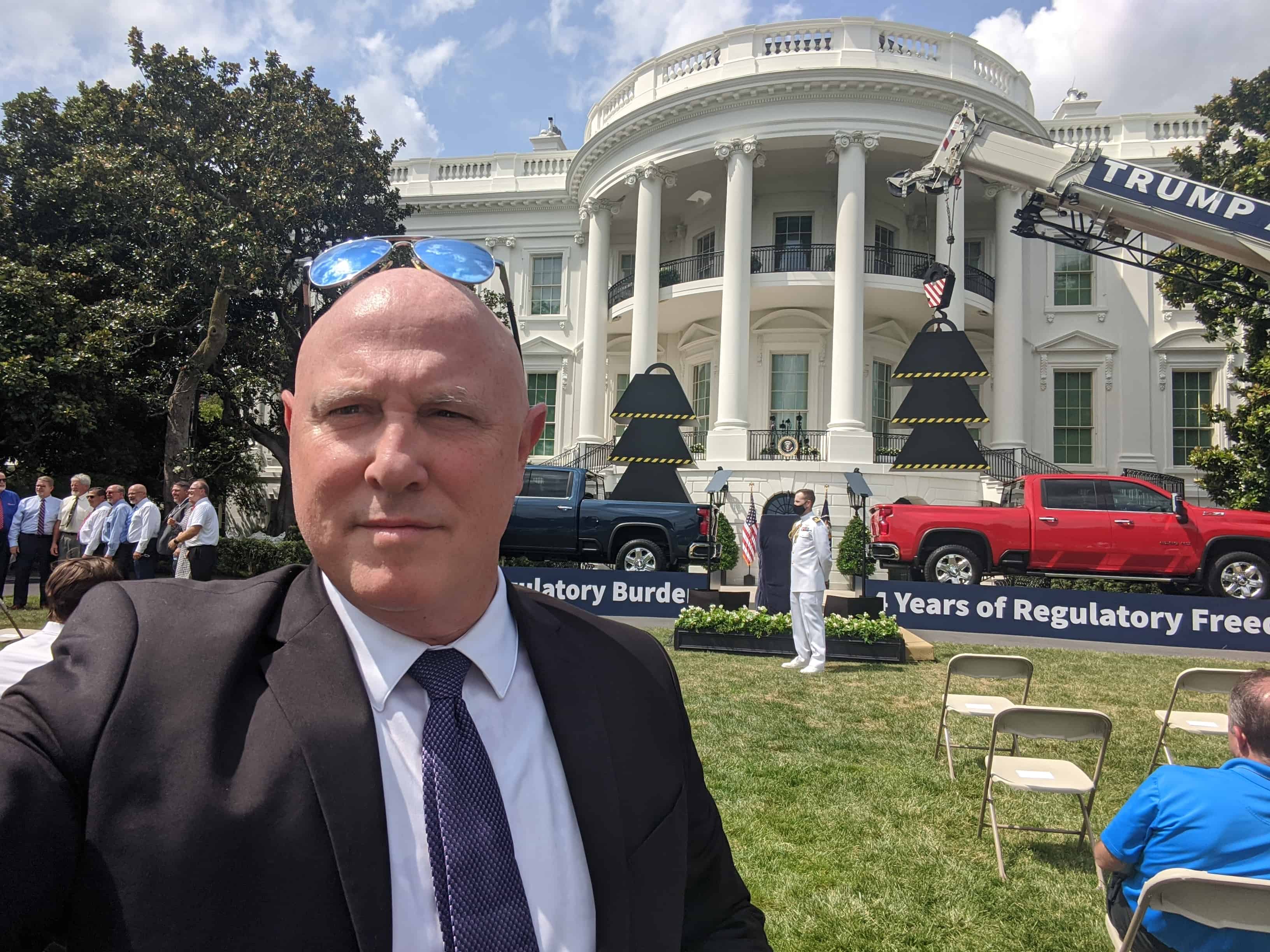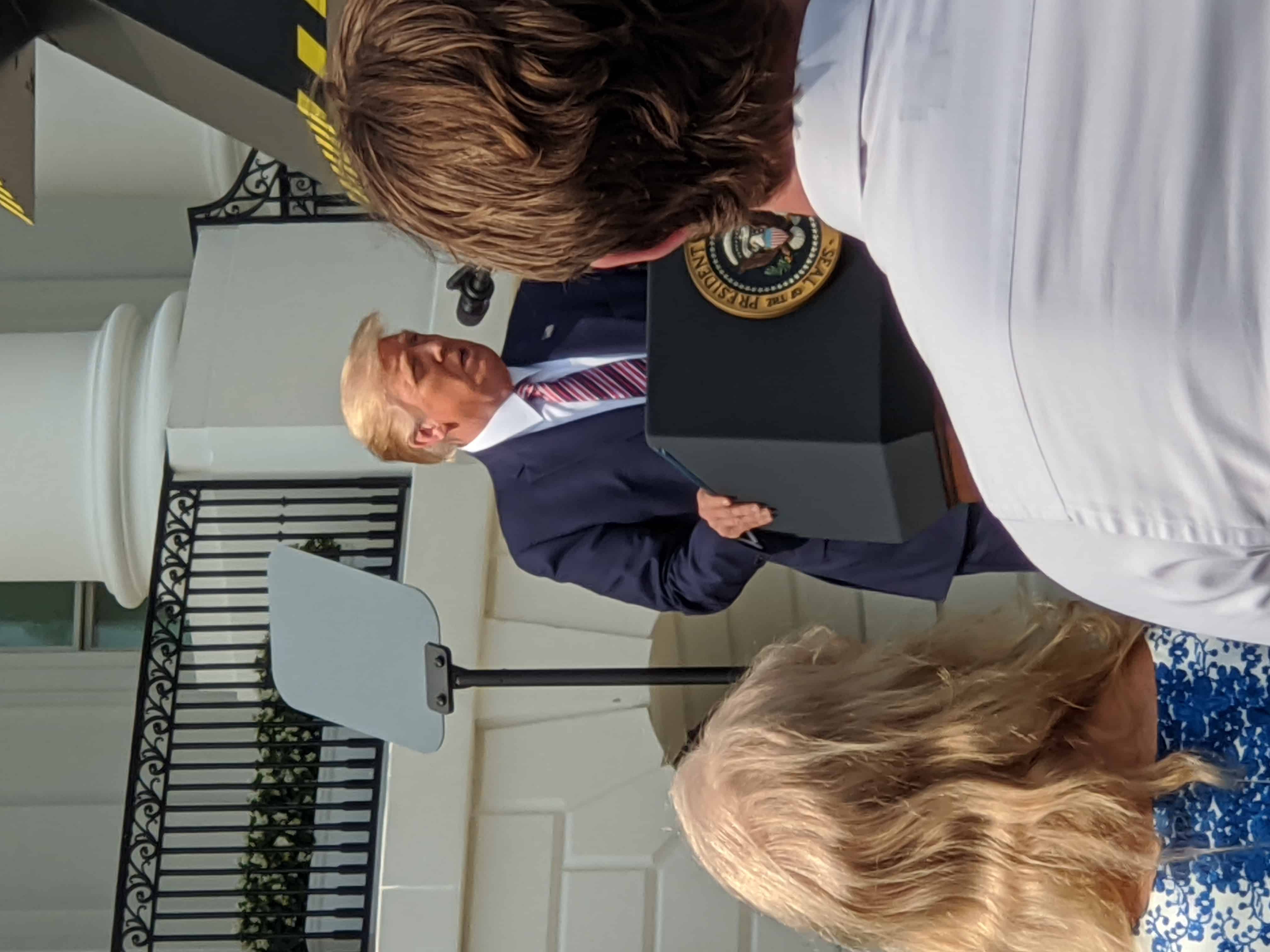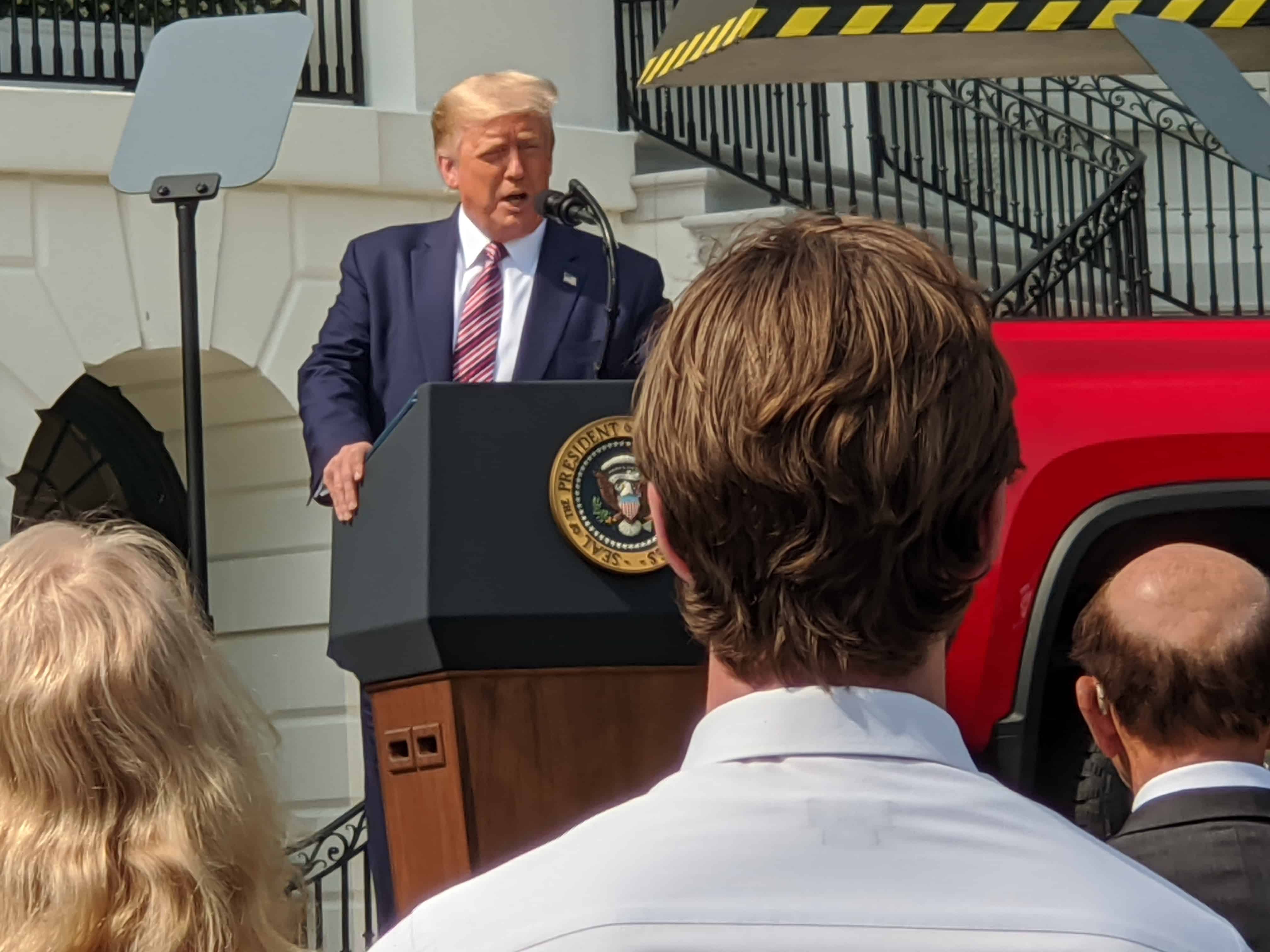Trump Administration Celebrates Red Tape Reduction, Promising More

 The White House hosted a midsummer celebration on the South Lawn of the Trump administration’s reforms and reductions of unneeded “job killing regulations” and red tape.
The White House hosted a midsummer celebration on the South Lawn of the Trump administration’s reforms and reductions of unneeded “job killing regulations” and red tape.
The center of gravity of the Trump program has been Executive Order 13,771. This early 2017 directive requires that, in order to issue a significant rule, agencies must eliminate at least two other rules. In the process, the aggregate net new federal regulatory costs may not be greater than zero.
Many of the administration’s cuts have been unprecedented, assuming they stick. Trump spoke of not cutting two but seven rules for every one added and of cutting $50 billion in costs overall. A bulleted fact sheet of highlights was provided to media.
The event included, along with President Trump, Vice President Mike Pence, and a number of cabinet members, including Transportation Secretary Elaine Chao, Commerce Secretary Wilbur Ross (unfortunately since hospitalized but apparently doing well), and Environmental Protection Agency Administrator Andrew Wheeler, as well as two governors and numerous state legislators.
I was fortunate to attend, and have included a couple of selfies nearby.
A celebratory Trump chastised overregulation’s cost to families and promised many tens of billions more in regulatory reductions in the wake of a recently announced rule modernizing the National Environmental Policy Act, repeal of the Waters of the United States rule, and replacement of earlier auto fuel standards with the Safer Affordable Fuel Efficient Vehicles rule. He cheered the reemergence of the incandescent light bulbs and dishwashers and washing machines that work.
Addressing a rancher who spoke at the event, a victim of overreach of the Waters of the United States rule, Trump said:
The hard left wants to reverse these extraordinary gains, reimpose these disastrous regulations. They want to take what we’ve taken off, Jim, and they want to put them back on.
Changes related to the response to the coronavirus were also touted such as improved access to telemedicine, with the president asserting that, “In total, we’ve taken more than 740 actions to suspend regulations that would have slowed our response.” Such measures have featured prominently this summer in CEI’s #NeverNeeded campaign.
The remarks mirrored the survey of the regulatory enterprise CEI covered in the 2020 edition of Ten Thousand Commandments. To be sure, regulation has been added too, but the campaign under Trump has been singular, specifically taking on the administrative state and the progressive ideology sweeping the nation.
My favorite takeaway:
Unlike the socialists, we believe in the rule of the people, not the rule of the unelected bureaucrats that don’t know what they’re doing. We believe in the dignity of the individual, not the iron grip of the state. Our regulatory reforms are vital, not only to the success of our economy, but the strength of our democracy, and the survival of liberty itself.
In wrapping up, and before introducing the vice president, Trump assured the crowd:
My Administration will continue pressing forward until we have made every last vestige of Washington fully, completely, and totally accountable to the citizens of the United States.
Back in 1996, when I wrote the first edition of Ten Thousand Commandments for CEI (in which then and now I urge that Congress answer to the people for the burdens and costs of regulation), a Washington Post story on the report was headlined, “A Think Tank Tenet: Thou Shalt Hold Congress Accountable.” Trump’s promise, which has not been made by other presidents, comes nearly a quarter century later. But better late than never.
The president promised still more regulatory reductions in the near future, seemingly particularly annoyed with a Department of Housing and Urban Development rule called “Affirmatively Furthering Fair Housing” or AFFH.
CEI has been vocal this year about options on the deregulatory front especially in the COVD-19 environment. Deregulatory stimulus is needed instead of the flash policy (spending and more spending) to which policy makers always default during any economic crisis.
Where Obama touted his “pen and phone” to expand government, we have urged that Trump use an “eraser” in 2020 to reduce it; aggressively so, but within the rule of law. Democrats are all in with progressive expansion of government, so Trump will without doubt have to act unilaterally to achieve further deregulatory stimulus, even though there are stellar congressional options like a regulatory reduction commission and the Guidance Out of Darkness Act to require full disclosure of guidance documents (something that Trump has, again uniquely, required by executive order).
Here are my suggestions on next steps:
A Proposed 13-Point Trump Agenda For Economic Stimulus By Reforming Regulation



